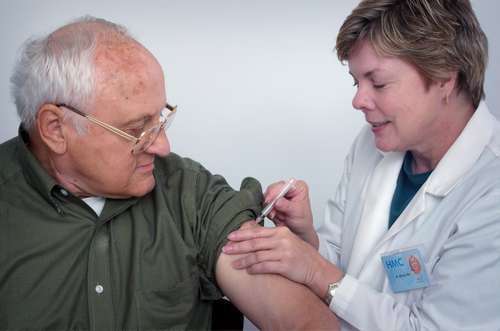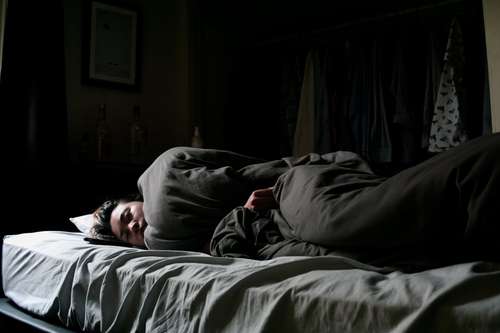As individuals age, their skin undergoes a series of transformations. It becomes thinner, loses elasticity, and produces less oil. This makes elderly skin health more vulnerable to various skin conditions.
Understanding these changes is necessary for senior skincare and can help seniors maintain healthy skin throughout their golden years. This article expounds on some of the most common skin conditions in seniors, highlighting their causes, symptoms, and possible solutions.
Understanding Skin Conditions in Seniors
Skin conditions in seniors are quite prevalent with an impact of over 90% on older individuals. The aging process leads to thinner, less elastic, and more fragile skin.
This is due to a decrease in collagen and elastin production, the proteins responsible for skin strength and elasticity. As a result, elderly skin health becomes more susceptible to dryness, bruising, and slower wound healing.
Common Skin Conditions in Seniors
Skin conditions in seniors can range from mild to severe. Recognizing the symptoms and understanding their causes is vital for senior skincare. Here are some of the most common skin conditions in seniors:
1. Dry Skin (Xerosis)
Dry skin, medically known as xerosis, is one of the most common skin conditions in seniors. This happens due to reduced oil production, frequent bathing, and exposure to dry air. Dry skin can lead to itching, flaking, and cracked skin. In severe cases, the cracks can become painful and susceptible to infections.

Featured | Pixabay
Treating skin conditions like xerosis involves using gentle, moisturizing soaps and applying moisturizing ointments or creams daily. Drinking more water and using a humidifier can also help maintain elderly skin health.
2. Easy Bruising
Elderly skin health is characterized by thinner skin and less fat, making it more prone to bruising. This, coupled with more fragile blood vessels, results in easier bruising. Some medications, like blood thinners, can further increase the likelihood of bruising. While most bruises are harmless, large, unexplained bruises should be checked by a doctor to rule out any underlying health concerns.
3. Age Spots
Years of sun exposure contribute to the appearance of age spots in elderly skin health. Also known as liver spots, these flat, brown spots often appear on areas frequently exposed to the sun. While they are harmless, some people might find them aesthetically displeasing.
Dermatologists can tell age spots apart from other conditions and recommend appropriate treatments where necessary. Using sunscreen with an SPF of 30 or higher is essential for preventing the subsequent development of age spots.
4. Skin Tags
Skin tags are soft, flesh-colored growths commonly found on the eyelids, neck, armpits, and groin. These are more prevalent in older adults, especially those who are overweight or have diabetes. Although harmless, skin tags can become irritated if rubbed by clothing or jewelry. Dermatologists can safely remove skin tags if desired.
5. Skin Cancer

Skin cancer is prevalent in seniors | Yay Images
The risk of skin cancer, particularly melanoma, increases with age. This is due to years of accumulated sun damage and the reduced ability of aging skin to repair pre-cancerous cells. Regular self-examinations of the skin are crucial for early detection of skin cancer. Dermatologists recommend annual skin cancer screenings for early detection and treatment.
6. Shingles
Shingles, caused by the varicella-zoster virus, is more common in older adults, especially those with weakened immune systems. The condition presents as a painful rash with blisters, usually on one side of the body. Early treatment with antiviral medications is crucial to reduce the severity and duration of the outbreak. Vaccination against shingles is recommended for seniors to prevent the disease.
7. Pressure Ulcers (Bedsores)
Bedsores are a common concern for bedridden or wheelchair-bound seniors. Prolonged pressure on the skin, especially in bony areas, restricts blood flow, causing tissue damage and sores. Prevention is crucial, and involves regular repositioning, keeping the skin clean and dry, and using specialized mattresses to distribute pressure.
8. Skin Tears
Fragile skin in elderly skin health is more prone to tears, especially with certain medications like corticosteroids. Minor tears can be managed with gentle cleansing and covering with gauze. However, larger tears or those showing signs of infection need medical attention.
Treating Skin Conditions in Seniors
Treating skin conditions in seniors requires a multi-faceted approach that often involves lifestyle adjustments, medications, and therapies. Some simple lifestyle modifications that can improve senior skincare and elderly skin health include:
- Moisturizing: Regular application of moisturizers is vital to combat dryness and maintain skin hydration.
- Sun Protection: Protecting the skin from the sun's harmful rays is crucial to prevent further damage.
- Bathing Habits: Short, lukewarm showers or baths are preferred, as hot water can strip the skin of its natural oils.
- Hydration: Drinking plenty of water helps maintain skin hydration from within.
- Medications: Depending on the specific skin conditions in seniors, doctors might prescribe medications such as:
- Topical Creams and Ointments: These can help relieve dryness, itching, and inflammation.
- Oral Medications: Antivirals for shingles or antibiotics for infections might be necessary.
- Therapies: For certain skin conditions in seniors, therapies like phototherapy can be beneficial.
Senior Skincare: Prevention is Key

Senior woman eating healthy vegetables | Yay Images
Preventing skin conditions in seniors involves proactive measures to protect and maintain healthy skin.These include:
- Regular Skin Checks: Monthly self-examinations of the skin are crucial to detect any changes early on.
- Healthy Diet: A balanced diet rich in fruits, vegetables, and antioxidants can support overall skin health.
- Hydration: Drinking plenty of water helps maintain skin elasticity and prevents dryness.
- Gentle Skincare Products: Choosing fragrance-free, hypoallergenic products formulated for sensitive skin is essential.
The Bottom Line
Maintaining healthy skin is an integral part of overall well-being, especially as we age. Skin conditions in seniors are highly prevalent but often manageable with the right knowledge and care. Understanding the changes our skin undergoes as we age empowers seniors to make informed decisions about their skincare routine and seek timely medical attention when needed.
Treating skin conditions effectively requires a personalized approach. Consulting a dermatologist or healthcare professional is essential for accurate diagnosis, personalized treatment plans, and ongoing monitoring.
Remember, healthy skin is achievable at any age. By prioritizing senior skincare and being proactive about skin health, seniors can embrace their golden years with confidence and vitality.




